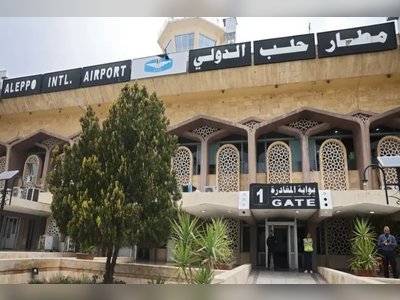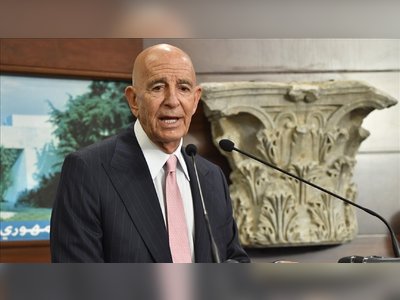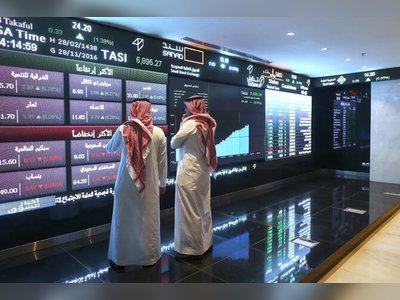0:00
0:00
Saudi Banks Increase Debt Market Activities Amid Sukuk Surge
The surge in sukuk issuances is central to Saudi Arabia's economic diversification goals outlined in Vision 2030.
RIYADH: Saudi Arabia's financial system is increasingly turning to debt markets for funding, driven by a significant rise in sukuk issuances.
As part of its Vision 2030 initiative aimed at economic diversification, the Kingdom raised SR2.64 billion ($704 million) through sukuk issuances in March 2024, following SR3.07 billion in February and SR3.72 billion in January.
Reports highlight that Saudi Arabia holds the largest share of the Gulf Cooperation Council's debt capital market, which surpassed the $1 trillion milestone at the end of January.
This represented a 10 percent year-on-year growth across all currencies.
Fitch Ratings reported earlier this year that Saudi Arabia has emerged as the largest dollar-denominated debt issuer in emerging markets outside China, and the world’s largest sukuk issuer as of 2024, with the Kingdom’s debt capital market growing by 20 percent year on year to reach $432.5 billion in outstanding debt.
The proceeds from sukuk are utilized to finance major projects, including NEOM, the Red Sea Project, and Qiddiya, which require significant investments amounting to hundreds of billions of dollars.
Experts in Islamic finance emphasize that sukuk issuance supports sustainable development and attracts ethical investments from both domestic and international investors.
According to the principal at a management consultancy, while the Saudi banking system remains well-capitalized, reliance on debt markets introduces potential risks that require careful management.
The shift toward debt markets necessitates heightened regulatory vigilance and robust risk management practices to ensure financial stability.
Investor confidence in Saudi Arabia's economic reforms has been robust, as demonstrated by the strong demand for sovereign bond issuances, with oversubscriptions often exceeding several billion dollars.
However, increasing reliance on external debt exposes the Kingdom to risks, particularly with potential fluctuations in global interest rates and oil revenues.
Financial analysts have noted that the strong performance in debt markets may enhance the resilience of Saudi Arabia’s banking sector by diversifying funding sources.
As of 2024, Saudi banks raised approximately $11.5 billion in debt markets, with expectations of exceeding this figure as financing for major projects continues.
Recent debt issuances by prominent banks, including AlRajhi Bank and Riyad Bank, reflect a strategic response to evolving governmental and corporate financing needs.
The expansion of the debt instrument market aligns with the strategic objectives of the Saudi Capital Market Authority.
The Kingdom's strategy aims to foster a robust debt capital market, which is essential for attracting foreign investments and offering new opportunities to domestic investors.
Analysts suggest that the growing focus on sukuk is crucial for achieving the objectives of economic diversification and sustainable growth envisioned in Vision 2030.
Moreover, the ongoing developments indicate a shift towards a deeper and more sophisticated financial market.
The Saudi debt capital market is projected to exceed SR2 trillion in outstanding debt over the coming years, fueled by government projects and economic reforms.
Integration with global markets, advancements in financial technology, and a focus on environmental, social, and governance (ESG) considerations are poised to transform Saudi banks’ approach to debt issuance.
The embrace of fintech and innovative platforms for sukuk issuance is anticipated to enhance efficiency and transparency in the debt market.
The Kingdom's focus on sustainable finance aligns with its long-term goals of achieving net-zero emissions by 2060, thereby attracting a new segment of investors prioritizing sustainability.
As the financial landscape continues to evolve, challenges associated with market volatility and systemic risks will remain pertinent concerns for the banking sector.
As part of its Vision 2030 initiative aimed at economic diversification, the Kingdom raised SR2.64 billion ($704 million) through sukuk issuances in March 2024, following SR3.07 billion in February and SR3.72 billion in January.
Reports highlight that Saudi Arabia holds the largest share of the Gulf Cooperation Council's debt capital market, which surpassed the $1 trillion milestone at the end of January.
This represented a 10 percent year-on-year growth across all currencies.
Fitch Ratings reported earlier this year that Saudi Arabia has emerged as the largest dollar-denominated debt issuer in emerging markets outside China, and the world’s largest sukuk issuer as of 2024, with the Kingdom’s debt capital market growing by 20 percent year on year to reach $432.5 billion in outstanding debt.
The proceeds from sukuk are utilized to finance major projects, including NEOM, the Red Sea Project, and Qiddiya, which require significant investments amounting to hundreds of billions of dollars.
Experts in Islamic finance emphasize that sukuk issuance supports sustainable development and attracts ethical investments from both domestic and international investors.
According to the principal at a management consultancy, while the Saudi banking system remains well-capitalized, reliance on debt markets introduces potential risks that require careful management.
The shift toward debt markets necessitates heightened regulatory vigilance and robust risk management practices to ensure financial stability.
Investor confidence in Saudi Arabia's economic reforms has been robust, as demonstrated by the strong demand for sovereign bond issuances, with oversubscriptions often exceeding several billion dollars.
However, increasing reliance on external debt exposes the Kingdom to risks, particularly with potential fluctuations in global interest rates and oil revenues.
Financial analysts have noted that the strong performance in debt markets may enhance the resilience of Saudi Arabia’s banking sector by diversifying funding sources.
As of 2024, Saudi banks raised approximately $11.5 billion in debt markets, with expectations of exceeding this figure as financing for major projects continues.
Recent debt issuances by prominent banks, including AlRajhi Bank and Riyad Bank, reflect a strategic response to evolving governmental and corporate financing needs.
The expansion of the debt instrument market aligns with the strategic objectives of the Saudi Capital Market Authority.
The Kingdom's strategy aims to foster a robust debt capital market, which is essential for attracting foreign investments and offering new opportunities to domestic investors.
Analysts suggest that the growing focus on sukuk is crucial for achieving the objectives of economic diversification and sustainable growth envisioned in Vision 2030.
Moreover, the ongoing developments indicate a shift towards a deeper and more sophisticated financial market.
The Saudi debt capital market is projected to exceed SR2 trillion in outstanding debt over the coming years, fueled by government projects and economic reforms.
Integration with global markets, advancements in financial technology, and a focus on environmental, social, and governance (ESG) considerations are poised to transform Saudi banks’ approach to debt issuance.
The embrace of fintech and innovative platforms for sukuk issuance is anticipated to enhance efficiency and transparency in the debt market.
The Kingdom's focus on sustainable finance aligns with its long-term goals of achieving net-zero emissions by 2060, thereby attracting a new segment of investors prioritizing sustainability.
As the financial landscape continues to evolve, challenges associated with market volatility and systemic risks will remain pertinent concerns for the banking sector.











